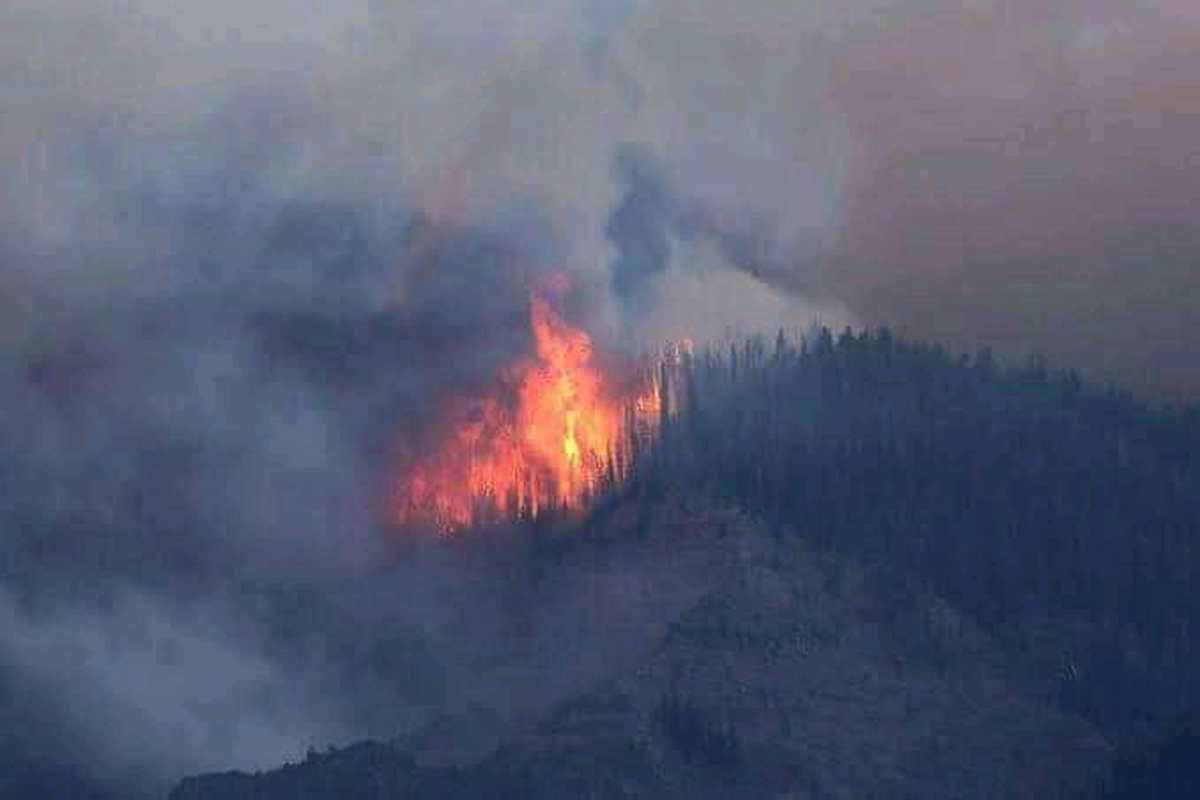Conduct planning for scientific mgmt of green cover: LG
*Abnormal increase in incidents reported in last few years
Mohinder Verma
JAMMU, Nov 26: Over 50% of the total forest area in 6646 compartments across the Union Territory of Jammu and Kashmir falls in the high and medium vulnerable zones as far as forest fires are concerned and unless detailed action plan is prepared promptly the damage cannot be minimized. Keeping this in mind, the Lieutenant Governor has directed the Forest Department to conduct planning for scientific management of green cover.
The startling revelations about vulnerability of forests to fires have been made in a study titled “Forest Fire: Risk Zonation and Vulnerability Assessment” conducted by Department of Ecology, Environment and Remote Sensing, the copy of which is available with EXCELSIOR.
As per the study, out of total area of 27869.87 square kilometers in 6646 compartments of forest divisions of Jammu and Kashmir, 4282.21 square kilometers fall in high vulnerability zone and needs immediate attention to minimize the damage. Similarly, 9490.15 square kilometers fall in the medium vulnerable zone, 4636.47 square kilometers fall in low vulnerable zone of forest fire and 9457.04 square kilometers fall in unlikely vulnerable zone.
As far as Jammu province is concerned, 2392.58 square kilometers fall in high vulnerable zone while as 5528.58 square kilometers in medium vulnerable zone while as in Kashmir province, 1893.63 square kilometers fall in high vulnerable zone and 3961.9 square kilometers in medium vulnerable zone.
Out of total 4353 forest fire incidents occurred in the earlier years in Jammu and Kashmir, 2374 fire incidents have occurred in the high vulnerable zones, 1592 fire incidents in medium vulnerable zone and 166 incidents in low vulnerable zone.
“The forests face tremendous anthropogenic pressures as they render variety of services on account of removal of fuel-wood, fodder and grazing. This pressure is further heightened by forest fires that pose a grave threat to entire regime of flora, fauna and adversely impact the ecology of that area”, the study said, adding “baneful impacts of forest fire do not remain confined to the damage only but exceed far beyond and have socio-economic implications also”.
“Forest fires are quite common in sub-tropical Jammu region and their frequency has generally been low in Kashmir region. However, changes in precipitation patterns and rising temperatures are creating favourable conditions for higher incidents of forest fires in colder regions as well”, the study further said.
Over the years, Jammu and Kashmir has witnessed an abnormal increase in the fire incidents across forest area. Changing climatic conditions and rising temperatures accentuate the vulnerability to forest fires as such advance planning based on scientific studies can significantly contribute in preventing such events.
Commenting on the study, Lieutenant Governor Manoj Sinha said, “Jammu and Kashmir is endowed with diverse forests that are an integral part of its ecology, cultural heritage and livelihood. The sustainable management of forest assets and their growth has always been a priority in J&K, which aims to bring two third of its geographical area under forest and tree cover”.
“Prevention and control of forest fires assumes an important place in management of forests. An uncontrolled forest fire invariably destroys life forms, productivity of ecosystem as well as endangers sustainability of forests. The use of geospatial information and technology to assess and map the vulnerability to forest fires is of utmost significance for scientific planning and management of forests”, he further said.
Lieutenant Governor said that the study will bolster the efforts of Forest Department to prevent and effectively manage forest fires in Jammu and Kashmir.
Stating that GIS based intervention for mapping of vulnerable forest areas based on actual fire incidences help in advance planning and management of such areas, Chief Secretary Dr Arun Kumar Mehta said that Forest Department must adopt the recommendations from this report for preparation of a comprehensive Action Plan on forest fire management in Jammu and Kashmir.


